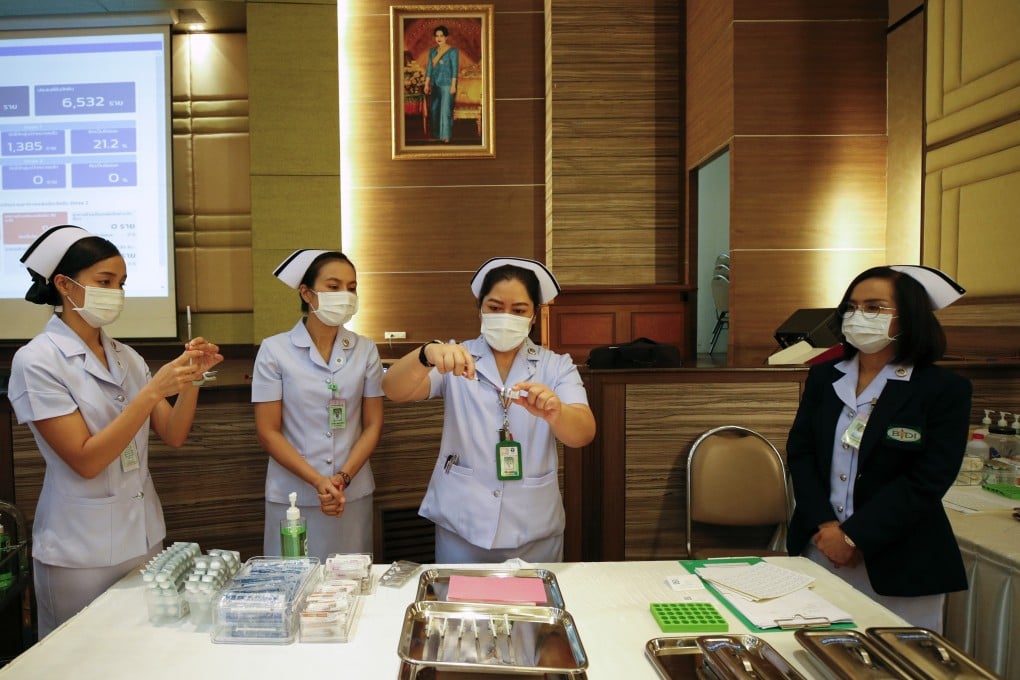Advertisement
Coronavirus: Thailand to start using AstraZeneca vaccine after delay over safety; Duterte’s spokesman has Covid-19
- Thai PM Prayuth and his cabinet due to be the first to receive the shot after a brief delay due to blood clotting concerns
- Harry Roque was last with Duterte in a provincial trip four days ago but said he did not endanger the 75-year-old president
4-MIN READ4-MIN

Thailand will start using the AstraZeneca Covid-19 vaccine on Tuesday after a brief delay due to concerns over its safety, officials said, with the prime minister and his cabinet due to be the first to receive it.
Thailand was on Friday the first country outside Europe to suspend use of the AstraZeneca shot. Authorities in Ireland, Denmark, Norway, Iceland and the Netherlands suspended their use of the vaccine over blood clotting issues.
Natreeya Thaweewong of the spokesperson’s office of government house told reporters in a text message that the delayed inoculations of Prime Minister Prayuth Chan-ocha and his ministers would take place on Tuesday morning.
Advertisement
AstraZeneca said on Sunday it had undertaken a “careful review” of data from more than 17 million people vaccinated in the UK and European Union, which showed “no evidence of an increased risk of pulmonary embolism, deep vein thrombosis or thrombocytopenia.”
Thai Health Minister Anutin Charnvirakul said many countries had confirmed there were no blood clot issues from the AstraZeneca shot.
Advertisement
Advertisement
Select Voice
Select Speed
1.00x